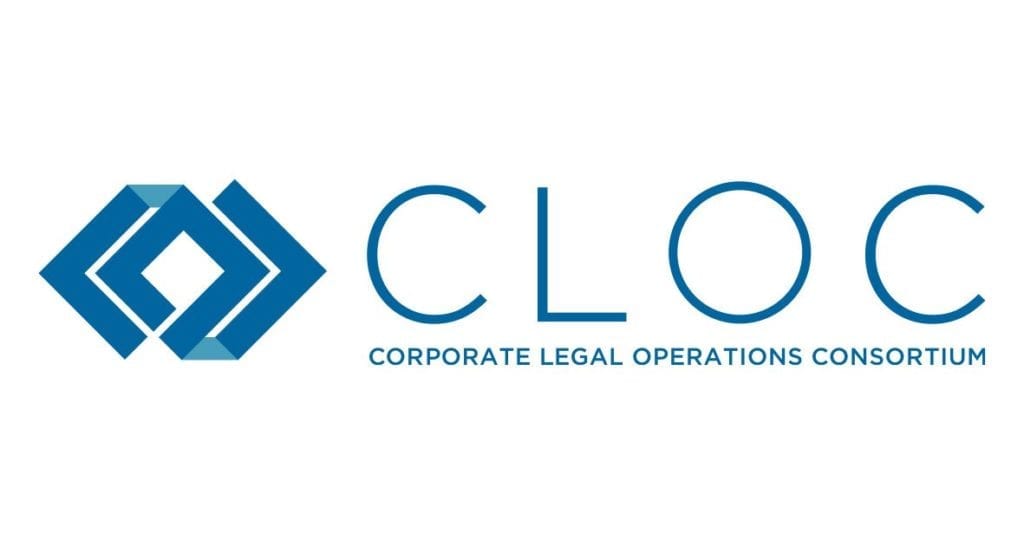Riding the Wave of Change: An Interview with Justin Hectus
One of the pleasures of being able to appear at CLOC Institute 2017 a few weeks ago? The chance to share the stage with Justin Hectus of Keesal, Young & Logan.
As a two-time International Legal Technology Association (ILTA) Distinguished Peer Award winner, and the Chief Information Officer (CIO) and Chief Information Security Officer (CISO) at KYL, he’s uniquely qualified to talk about the changes being wrought by Legal Operations workflow automation, and its potential upside for the legal profession.
This week, Justin presents at Legaltech West Coast 2017 on the subject of “Riding the Wave of Change To Meet Client Needs More Efficiently.” We grabbed a few moments to ask him questions about what’s in the offing as technology brings transformational changes to organizations and society alike.
So Justin, to start with a very general question, where do you think we are in terms of technological transformation?
When I pause to reflect on where we are today, not just in the legal industry but as a business community and a society, I’d say we’re in a period not just of rapid change but increasingly rapid change.

The business and practice of law is fundamentally different from what it was 10 years ago, and it may bear little resemblance to the what it will look like 10, or even 5, years from now.
That applies to most businesses in most industries; if you look at their business environment, many companies are not only becoming more reliant on technology, they’re actually becoming tech companies at their core.
Goldman Sachs, as an example, has programmers and engineers making up about 30% of its total employees.
Software is playing an ever-increasing role in redefining automobiles in an even more dramatic fashion than the way that robotics revolutionized automobile manufacturing over the last two decades. Robots are taking over global trade – moving cargo in our ports and, soon, on the high seas. We’re seeing that type of disruption in every industry in which we operate and, even if it is to varying degrees, with every client.
What does that imply when it comes to workflow automation and digital transformation for the legal profession?
The only thing that matters on our side of the equation is doing what’s in the ultimate best interest of the client, and that includes a focus on how their business is changing and what will be in their best interest tomorrow.
When you look at technological disruption, the two major subcategories are: potential for tremendous risk and tremendous opportunity. We have to embrace the transformation from the standpoint of how to minimize risk while maximizing opportunity.
There are high-profile stories of companies that suffer under the delusion that their business model is impervious to change or competition from new models, but they don’t survive. Blockbuster versus Netflix. Kodak versus digital. Even Nokia versus the smartphone. Change is coming for us all, and those of us who are able to pivot quickly and adapt are going to do very well. Businesses, and I include law firms in that, that choose to maintain the status quo are going to be marginalized, will struggle and perhaps even go out of business.
One of the greatest challenges presented in this process involves changing the mode in which you work without changing the core of who you are, how you deliver client service and how both impact your reputation. If not handled well, you could end up fighting a battle on two fronts.
What are some of the specific considerations legal firms and Legal Ops teams have to bear in mind about new technologies like Legal Operations workflow automation?
There are so many opportunities to try new approaches to innovate traditional operations and procedures, and if you had an infinite amount of time and resources you’d like to try all of them, but there’s a real need to prioritize initiatives so you’re delivering the most benefit to the client in terms of reducing the total cost of litigation or services and delivering other efficiencies. It’s easy to get distracted by the new shiny object, like A.I., but you really have to make sure you’re focused on getting the most immediate benefit from the most applicable and proven technologies coupled with the right people and process in tandem with any forward-leaning efforts.
Clients tell us that legacy approaches aren’t working. So it’s critical for us, from our standpoint, to keep pace with our clients in the tech sector in a solid understanding of what new technologies are being adopted, how data is being used, how and where it is being stored, and what it takes to maintain compliance with an increasingly complicated patchwork of regulations. There aren’t many groups out there on the service side that can currently offer the right balance of technology, business, regulatory compliance and legal acumen. There’s a real opportunity for practitioners and firms willing to evolve and field teams of subject matter experts capable of meeting these needs.
When we partner with clients in these areas, we make certain that we understand how tech is changing their business, and what their level of commitment is to managing that and staying ahead of the associated challenges and cultural impact of that transformation.
You’ve found that one of those impacts is the new agility Legal Operations workflow automation gives them for experimentation?
One theme that we’ve picked up on from clients and strategic partners is that “failing fast” is not a bad thing. Getting to a quick “no” is better than striving towards a hopefully, maybe, eventual “yes.” Experimenting with new technologies is fun and exciting, and you see what sticks. There are always “must win” projects, of course, where there’s not as much room for taking chances, but the opportunity to try new fliers, particularly if it involves a collaboration with a client, is always compelling.
How does an entity like CLOC figure in all this?
CLOC was born out of that state of disruption, out of an insistence that we don’t need to do things as we’ve always done them. Having people who are in leadership positions at these corporate legal departments who have joined together to create a platform where they can share their experiences, their successes and their failures, is a blessing.
For anyone who works on the law firm side of this equation, CLOC is really providing a roadmap for innovation, a constructive dialogue with admonitions, but all parts of a discourse that helps promote positive change.
 That’s been a gift to me and to our firm, and CLOC has been helping to encourage improvement across the entire legal ecosystem. Their work has been a catalyst for innovation beyond in-house legal teams – law firms, alternative legal services providers, software companies and anyone operating in the legal space should be paying attention.
That’s been a gift to me and to our firm, and CLOC has been helping to encourage improvement across the entire legal ecosystem. Their work has been a catalyst for innovation beyond in-house legal teams – law firms, alternative legal services providers, software companies and anyone operating in the legal space should be paying attention.
What will the real key to success be in this transformation?
One of the things that strikes me is that this is fundamentally a human endeavor, and it doesn’t matter how good the technology is, if you don’t have the buy-in, energy and enthusiasm of the people involved in the process, then you’re destined to fail.
The best ideas come from the people who do the work, and just opening the door to them about the possibility of change and improvement provides a level of engagement and accountability that people frankly crave in their jobs and professional lives. We’re fortunate enough to have people at all levels of the firm who not only know and execute their jobs with style and grace, but they are open to changing with the times and they often have amazing ideas for improvement once they are presented with the opportunity to provide input.
People who are knowledgeable, experienced and who care about the work being done will have opinions about processes and how to improve them. That, more than anything else, really sets the stage for what we’re trying to accomplish in workflow automation and the evolution of how we deliver legal services.
To see more about Justin’s take on Legal Operations workflow automation, check out the video below.



